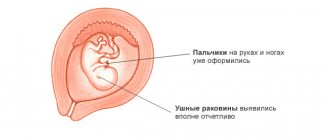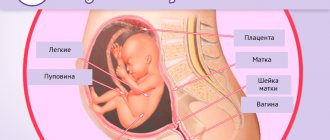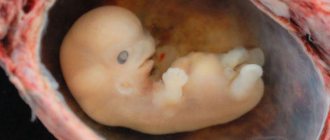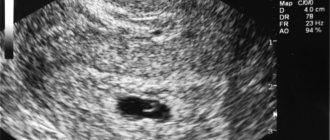Useful Instagram for pregnant women about food and their effect on the body - go and subscribe!
Usually, all doubts are left behind when, after the 5th week, the 6th week of pregnancy begins, and the woman begins to have new pleasant worries. First of all, you need to carefully consider the recommendations for proper nutrition, which is a guarantee of good development of the life that is emerging within. The quality of the baby’s nutrition after birth depends on whether the fetus received the required amount of nutrients and elements during pregnancy.
Changes in the body and their effect on diet
Fetal size at 6 weeks of pregnancy
The appearance of new sensations, sometimes not very pleasant, becomes a direct confirmation of pregnancy. At week 6, they signal that the expectant mother’s diet should help reduce negative manifestations, allowing her to increase her positive attitude.
The fetus during this time period of pregnancy is still tiny, reaching a length of no more than 9 mm and a weight of about 4.5 grams. However, his nervous system is already being formed, a heart is appearing, and other internal organs are being formed. A woman's diet at 6 weeks of pregnancy must include folic acid - vitamin B9. With a sufficient amount of it, the correct formation and further development of all organs and tissues of the embryo occurs.
Folic acid content in products.jpg
Folic acid also plays an important role in the woman’s body during pregnancy. With a lack of this vitamin, she may experience pain in the legs, anemia, and severe toxicosis. It should be noted that there is a fairly extensive list of products that contain this vitamin:
Folic acid in products and tablets
- parsley, lettuce, spinach, asparagus, Brussels sprouts, broccoli;
- wholemeal flour;
- oranges;
- lentils, beans;
- pumpkin;
- green pea;
- apricots, avocados;
- whole grains of wheat, rye, oats;
- melon.
Taking dosage forms of vitamin B9 during pregnancy is prescribed only by a doctor.
6th week of pregnancy
What happens in the sixth week of pregnancy
During this period, the woman becomes more irritable (due to the influence of hormones), begins to feel pain and tingling in the nipples. The taste of food is now different, the smells are distorted, and salivation increases. In this condition, it is advisable for a woman to drink more clean water, avoid food and avoid stressful situations.
To relax and get rid of stress, a woman can start meditating. It is best for a pregnant woman to avoid unpleasant odors that cause nausea.
6 weeks of pregnancy is usually the stage when most women realize that they are now in a new status. This happens because they begin to notice changes in the body. Pregnancy is becoming a reality. The expectant mother begins to realize that now she needs to take care not only of herself, but also of her unborn child, whose health and development completely depends on her.
The main companion of all women at this stage is toxicosis. Nausea most often occurs in the morning, however, it can continue throughout the day. To prevent morning sickness, you need to snack on a piece of biscuit, cracker or drink a cup of tea. Keep in mind that this should be done first thing in the morning when you wake up but are still lying in bed. At this moment, the pregnant woman feels tired and weak, she feels a loss of strength and she may feel dizzy. Moods often change and women can be very moody and irritable. There are women who manage to feel normal throughout the entire period of pregnancy.
Another main symptom of pregnancy is the changes that occur in the breasts. The breasts swell and become more sensitive, painfully sensitive. The nipples and areolas become darker, and the woman may feel a slight tingling sensation. The weight has not yet changed and the stomach is flat, only the waist may become a little wider. In some cases, blood pressure may decrease and some problems with the digestive system such as burning, constipation or intestinal cramps may occur. Since the hormonal balance has changed, acne may appear.
Your baby's arms and legs are like little fins. Photo babycenter.com
To rule out an ectopic pregnancy and ensure that the pregnancy is progressing normally, doctors usually make the woman undergo some tests to determine the level of hCG and progesterone in the blood. Both hormones play an important role for the normal course of pregnancy. Progesterone prevents uterine contractions and a situation where the tone of the uterus becomes high. Typically, progesterone levels gradually increase until the end of pregnancy. The hormone hCG (human chorionic gonadotropin), which is produced by the placenta, should increase throughout the first trimester. If the levels of these hormones in your blood are low, your doctor may prescribe medication for you
The placenta begins to actively develop during this period. This process is extremely important as the placenta provides the fetus with nutrients and oxygen. Also at this time, the amniotic fluid sac begins to actively develop. It protects the fetus from mechanical stress throughout pregnancy. The umbilical cord is gradually formed, the placenta is attached to the wall of the uterus and until the placenta is fully matured, the main function of providing the fetus with the necessary nutrition is carried out by the yolk sac. Now your child is just a fetus that is actively forming and developing. The fruit is very, very small, its body is up to 1 cm in size. During this period, the rudiments of arms and legs appear, which look like small tubercles. The head takes on a certain shape and cartilage tissue begins to form for future bones, tendons and muscles. The face changes - a nose, mouth, eye holes and ears appear on it. At this stage, it is not yet possible to determine the sex of the child; external sexual characteristics have not yet developed.
The process of forming the basis for future organs of all important systems is in full swing:
- Digestive system (the intestinal tube, the basis for the liver, stomach and pancreas, develops);
- Respiratory system (lungs, trachea and bronchi);
- Circulatory system (the first blood vessels and binocular heart appear);
- Immune system (thymus forms);
- Nervous system (the neural tube closes, nerve cells are actively dividing, brain vesicles appear, which will serve as prototypes for the right and left hemispheres of the brain).
We recommend 3 weeks of pregnancy
The baby is already trying to respond to stimuli and even move, but the expectant mother cannot yet feel all these movements
Now it is very important for a woman to be extremely careful and attentive, because any negative factors can cause irreparable harm not only to her health, but also to the health of her child. It is very important to take folic acid - vitamin B9 is extremely important for a normal pregnancy. It is necessary for the division of fetal cells, as well as for the formation of the placenta.
What symptoms may occur? The most worrying symptom that can occur during pregnancy is abdominal pain. If you experience severe pain from time to time, accompanied by bleeding, there may be a threat of miscarriage, in which case you should urgently consult a gynecologist. Sometimes abdominal pain can occur as a result of stretching of the uterine ligaments, in this case the pain is not so severe. Most often they feel like labor contractions, but you don't have to worry about that.
Internal organs gradually begin to develop. Photo babycenter.com
Most pregnant women experience severe lower back pain. If your pregnancy is progressing normally, this pain may occur as a result of the effect of progesterone and the enlargement of the uterus. These pains will go away on their own, usually before the 20th week. In the case of pathology, possible causes may be ectopic infections of pregnancy that affect the genitourinary system.
Menu for 6 weeks of pregnancy
When shaping nutrition, expectant mothers should understand that all recommendations about a balanced and healthy diet are aimed at benefiting both her own body and the unborn child. The restrictions that are inevitable when you are 6 weeks pregnant are not excessive. This is explained by the fact that there remains a fairly extensive list of types of products recommended for consumption, from which a varied and tasty menu is compiled every day.
Proper nutrition during pregnancy
If you want sweets, and sugar is strongly discouraged by your doctor during pregnancy, you can replace it with fruits - bananas, pears, apples or berries. You should select varieties from nearby regions, since during long-distance transportation, fruits ripen on the road, and various chemical additives protect them from spoilage.
Be sure to include fresh or steamed vegetables in your diet during pregnancy - cucumbers, tomatoes, cabbage, zucchini, potatoes. Vegetable oil is used as a dressing; preference is given to olive varieties (why?). We must not forget about hygiene. All vegetables are not just washed with running water, but also doused with boiling water at the end.
Banana ripeness
Meat dishes are allowed during the 6th week of pregnancy, excluding lamb and pork. Among the permitted types are domestic lean poultry, veal and beef (features, recipes), and rabbit. Cooking methods are changing towards the use of a double boiler, oven, as well as boiling and stewing techniques. Sea fish is included in the menu.

Mercury content in fish and shellfish
Porridges such as rice and buckwheat, which are boiled with the addition of milk, are considered mandatory for daily consumption.
During pregnancy, fermented milk products are included in the diet, helping to normalize the functioning of the digestive system. Among the drinks, fruit and berry jelly, fruit juice, and compote will bring the greatest benefit. If you prefer vegetable juices, you need to take them in small quantities due to their high concentration. You can mix several types of juice, for example, carrot, cabbage and asparagus.
For an expectant mother in the 6th week of pregnancy, you can offer an approximate menu, which will explain the principle of its preparation in order to rationally select dishes and products based on five meals:
- A glass of freshly prepared juice, toast with butter.
- Vegetable salad with herbs, weak tea (we write about the “correct” tea for pregnant women here).
- A boiled egg, a slice of rye bread with a thin layer of butter, a glass of kefir.
- Mashed potatoes with boiled meat, fruit, a glass of fermented baked milk, Varents or kefir.
- Boiled fish with a side dish of rice, vegetable salad, weak tea.
Diet for pregnant women
Miscarriage at 6 weeks
The sixth week of pregnancy is considered a risky period due to the possibility of miscarriage. Even the slightest illness can cause this terrible event.
Causes of miscarriage:
- colds, ARVI, angina pectoris, flu, etc.;
- too high body temperature (above 38 °C);
- increased physical activity;
- genitourinary system infections;
- stress;
- chronic and hereditary diseases;
- taking antibiotics, strong composite and other drugs.
Symptoms and signs of miscarriage:
- brown vaginal discharge;
- sharp aching pain in the lower abdomen;
- pain in the lower back;
- menses.
We recommend Pregnancy by month
You should be aware that you may experience menstruation at this stage of pregnancy. However, this is the exception to the rule and occurs very rarely. If a woman notices discharge that closely resembles menstruation, it is recommended that she see a doctor as soon as possible. The altered hormonal balance provokes an increase in the growth of lactic acid bacteria in the vagina. This is why normal, non-worrying discharge should be whitish or clear, without any particular color or odor. If the color of the discharge changes, the discharge is greenish, brown or yellow in color and has an unpleasant odor, the woman most likely has an infection in her body. Very often, pregnant women encounter so-called thrush. This is not dangerous for the child, but very unpleasant for the mother; the symptoms of this disease are profuse light discharge that looks like curd flakes and redness, as well as swelling of the mucous membrane, accompanied by a burning sensation and itching. Many pregnant women try to combat this problem on their own, but you should keep in mind that most thrush medications are not recommended for use during the first trimester.
Preventive measures against miscarriage:
- stay positive;
- do not think about bad things and fight bad thoughts;
- Avoid stressful situations and take care of your health from an emotional point of view.
If you smoke, quit quickly. The first trimester of pregnancy is the most risky; smoking can cause miscarriage or premature birth. Try cutting down on the amount of coffee you drink for two reasons. Firstly, caffeine increases toxicosis. Secondly, coffee is a strong diuretic drink that negatively affects the stomach of the expectant mother. Coffee interferes with iron absorption, which prevents the iron from being absorbed into your body the way it should be absorbed. The first trimester is a rather difficult period, because most drugs are strictly prohibited from being taken at this stage. Therefore, the expectant mother should be very careful when it comes to her health and try to be safe. If something goes wrong, any cold that the mother had early in pregnancy can lead to complications and even miscarriage. This can also lead to impaired fetal development and complications that complicate the course of pregnancy and the birth process. Any medications that the expectant mother takes must be prescribed by a doctor.
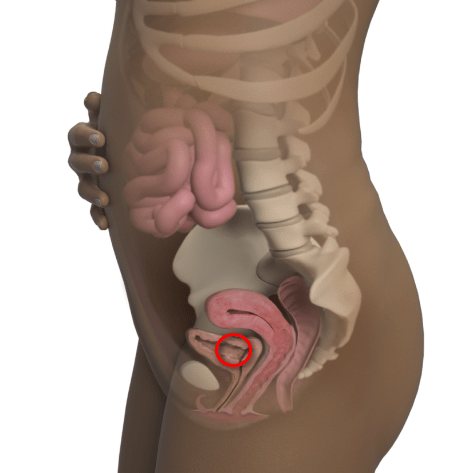
During this period, I increasingly want to go to the toilet. Photo babycenter.com
How does the diet differ from week 5?
If we compare nutrition during pregnancy, we can note that week 5 is characterized by frequent manifestations of early toxicosis. If these attacks become painful, then it is advisable to limit the consumption of animal proteins, replacing meat with nuts and increasing the percentage of fruit and vegetable components of the diet. Whole milk, which can cause nausea, is replaced with homemade yogurt (benefits and harms) or low-fat cheese.
Symptoms of early toxicosis depending on the severity of vomiting
During pregnancy, at the 5th week, the diet changes towards fractional meals. By eating small meals several times a day, you can reduce the suffering from toxicosis.
By the 6th week of pregnancy, a specific awakening ritual takes shape. Without getting up, you need to chew a rusk or cracker, and then carefully sit up in bed and drink weak tea. Before going to bed, it is recommended to eat some washed and scalded raisins. During the day, you must remember to drink purified water.
Pregnancy after menstruation
Many women calculate so-called safe days using a calendar. By noting the days when menstruation begins, it is easier to track the duration of the cycle, the onset of ovulation, and also calculate the days when the likelihood of conceiving is very low. But the calendar method does not provide 100% confidence in safe days. The first and last weeks of the cycle are considered such days. There are cases of women who have conceived immediately after the end of menstruation going to the doctor.
If the egg began its maturation in the final period of menstruation, and at the beginning of the cycle entered the abdominal cavity, then its fertilization becomes possible. The state of the hormonal and emotional background can also affect the untimely situational onset of ovulation.
High quality sperm of a partner, longevity and motility of sperm can also play a decisive role in the process of conception. Even if sexual intercourse occurred a week before expected ovulation, the most viable sperm retain their properties throughout this time and are able to fertilize a mature egg.
Keeping a personal menstrual calendar is very important for women with irregular or atypical cycles. In this case, it is advisable to replace the calendar method of contraception with other methods of contraception.
There is always the possibility of earlier ovulation than a woman would normally experience. Sometimes it really becomes possible to get pregnant immediately after the end of menstruation, so the issue of contraception should always be treated with increased attention.
If pregnancy is not yet part of your plans, barrier contraceptives combined with hormonal ones are the most reliable method of protection today. Hormonal contraceptives are selected by a doctor individually for each woman, taking into account lifestyle, age and health indicators.
Watch the video in which the gynecologist answers the strangest questions:
Nutrition rules
Every woman, having convinced herself that a long-awaited pregnancy has occurred, is able to draw up for herself a list of rules governing her nutrition in the 6th week.
Avoid unhealthy foods and products, which include the following:
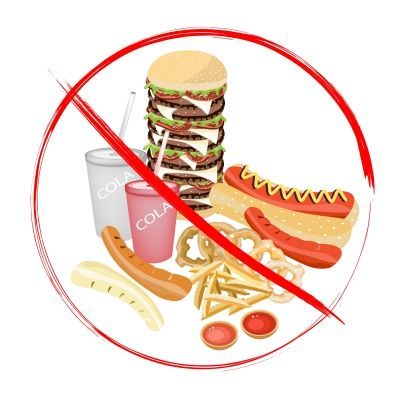
You should avoid fast food during pregnancy
- fried foods;
- marinades, smoking, pickling;
- hot seasonings and sauces;
- fatty meat, fish, lard;
- sausages, canned food (what's wrong with them?);
- rich meat broths;
- carbonated drinks;
- strong tea or coffee;
- fresh and sweet pastries, sweets;
- alcohol.
Reduce salt and sugar intake to a minimum.
Buy only fresh products.
Try not to overeat, as you don't want to gain extra pounds. It is recommended to eat five to six meals a day in small portions during the 6th week of pregnancy.
In the evening after dinner there should be at least three hours left before bed. If you feel hungry, it is permissible to drink kefir, chew dried fruits or eat an apple.
You should not fast during pregnancy. When traveling or at work, it is advisable to always have water, fruit, and light sandwiches with you.
All dishes must be brought to full readiness. You should not eat soft-boiled eggs or undercooked fried eggs during pregnancy. This will avoid intestinal infections that have a harmful effect on the fetus.
Pregnancy 6 weeks
Some dietary features
It’s good if the pregnancy proceeds without any particular complications, but this is not always the case. There are a number of unpleasant symptoms characteristic of week 6 that can be mitigated with the right attitude and nutrition.
Signs of early toxicosis
Due to early toxicosis, the expectant mother experiences severe nausea with salivation and intolerance to certain odors. To cope with this condition, during pregnancy, in addition to breakfast in bed, you need to adhere to a number of simple rules:

Consequences of insomnia during pregnancy
- chew food slowly;
- prevent the feeling of hunger;
- take vitamins recommended by your doctor;
- drink a decoction of dried apricots with prunes;
- suck a lemon drop;
- walk more often or ventilate the room;
- when waking up, tune yourself to a positive perception of reality, avoiding gloomy thoughts and negative forecasts;
- be sure to get enough sleep.
Often, at 6 weeks of pregnancy, expectant mothers feel a strong desire to constantly eat salty foods. Experts warn against indulging in such whims, since excess salt during pregnancy has an adverse effect on the heart, overloads the kidneys, and increases blood pressure.
Sometimes during pregnancy, women experience constipation at 6 weeks. Adding prunes, dried apricots, boiled beets, and figs to your daily menu will help you cope with them. To avoid excessive gas formation, it is advisable to eat bran bread less often.
If such a reaction to certain types of foods such as heartburn occurs, Almagel, which is recommended during pregnancy, should always be in the home medicine cabinet.
A mixture of vegetable (carrots and beets) juices in a 1:2 ratio helps increase hemoglobin during pregnancy. It must be taken into account that beet juice, due to its biological activity, should be drunk a maximum of half a glass per day.
Rosehip decoction during pregnancy will help cope with swelling
It is not drunk in its pure form, but is taken in combination with other vegetable juices. It is better not to take it immediately after squeezing, but to let it stand in the refrigerator for about two hours.
Edema is caused by sodium salts in food. If during the 6th week of pregnancy there is a frequent manifestation of swelling of the limbs and the appearance of puffiness on the face, then it is necessary, after consultation with a doctor, to take diuretic compounds. This could be herbal tea or weak tea with a lemon drop.
Excess salts must certainly be removed, so the problem cannot be ignored.
What differences in nutrition will there be at 7 weeks of pregnancy?
Causes of menstruation at the beginning of pregnancy
Suspicion of pregnancy may cause symptoms of premenstrual syndrome. A woman feels a sharp change in well-being, swelling of the mammary glands, sore nipples, irritability, and sometimes even nausea. There is a suspicion of pregnancy, especially if the woman did not use protection during sexual intercourse.
During normal pregnancy, periods do not appear. If the period is very early, the woman may not even feel the onset of pregnancy. Bloody discharge, which can be mistaken for the beginning of menstruation, has a different nature. Cases where bleeding occurs during pregnancy are not uncommon. Each of them requires immediate medical attention, as they may pose a threat to the fetus.
Popular articles now
Improves liver function, protects against cancer, is good for the intestines: a colossally useful spice has been named
She swapped her long curls for a stylish bob with short bangs: Nadezhda Meikher impressed with her radical change in image (photo)
She cut her hair and got a short bob haircut with bangs: 38-year-old Vera Brezhneva radically changed her style (photo)
Descendants of the legendary Roksolana: what the children of Suleiman and Alexandra Anastasia Lisows really looked like
show more
Not all spotting during pregnancy is considered menstruation. Bleeding of varying degrees of intensity can occur in several cases:
- Damage to blood vessels during the implantation of a fertilized egg;
- Hormonal imbalance;
- Lack of time to consolidate the fertilized egg;
The immersion of the egg into the endometrium is sometimes accompanied by the destruction of small vessels and the rejection of small fragments of the uterine lining. This causes a slight brown or bloody vaginal discharge that can be mistaken for the onset of your period. This type of bleeding is called implantation bleeding. It may be accompanied by a feeling of discomfort. Such discharge does not pose a danger to the fetus or the pregnant woman, but, nevertheless, this phenomenon should be reported to a gynecologist.
An inflammatory process in a woman’s body or a sudden stressful situation can cause disturbances in the functioning of the endocrine system. In this case, the amount of the hormone estrogen decreases sharply. Bloody discharge begins during the period when menstruation was expected. This situation sometimes lasts up to four months. This is dangerous for the fetus, as there is a risk of miscarriage.
The fertilized egg reaches the uterus over a period of time from 7 to 14 days. Conception occurring at the very end of the cycle does not always allow the fertilized egg to gain a foothold in the uterine cavity. Menstruation begins, but pregnancy does not occur.
The simultaneous release of two mature eggs can also trigger menstruation. One egg is fertilized, the second, not fertilized, provokes menstruation.
Previously, it was generally accepted that if there was minor bleeding at the very beginning of pregnancy, strict bed rest was recommended for the expectant mother. Research has found that bed rest alone cannot completely prevent miscarriage. In case of minor bleeding, it would be better to avoid excessive activity and physical activity, as well as temporarily exclude sexual relations until the doctor determines the nature of the bleeding and the origin of the discharge.

